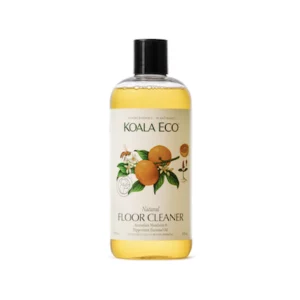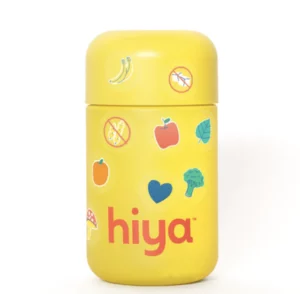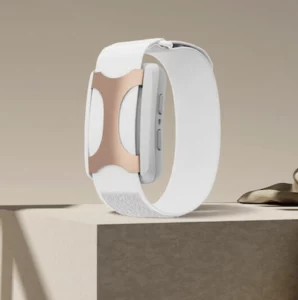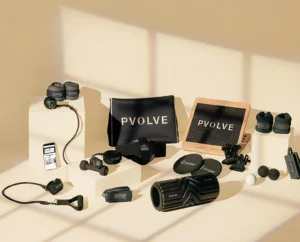There is no denying it, we love a glass of wine, festive holiday cocktail, or bubbly champagne with or without fresh pressed juice. The photos above are from a recent cocktail-oriented dinner downtown at Apartment A (get the cocktail recipes here.) We are firm believers that there’s room for indulgence in even the most green-juice-loving, chia-seed-eating lifestyle; it’s simply a matter of balance and being proactive. We abide by the rules of moderation, channeling our inner Goldilocks to find what is just right – a glass of wine a few times a week and maybe a big night out from time to time. But the truth is, creating a state of equilibrium in our libations is only one part of the equation. That is because alcohol does do its fair share of damage. Even when drinking occasionally and sticking to the most pure organic choices, alcohol consumption harms the body by putting major stress onto the liver. It is possible, however, to offset the effects of alcohol – and find a balance between what we love to drink and how good we want to feel – by supporting and cleansing the liver.
The Damage: The liver is in charge of over four hundred functions in the body. It is the master organ for producing bile, which carries away waste and breaks down fats. It produces proteins for blood and cholesterol for making hormones. It stores and releases glucose for sugar balance and iron for building blood. It resists infections by producing immune factors and removing bacteria from the blood and regulates blood clotting. Finally, it is the main detoxification workhorse, actively neutralizing and clearing harmful toxins including chemicals, harmful hormones, drugs and alcohol. Alcohol is metabolized by an enzyme called alcohol dehydrogenase (ADH). ADH breaks alcohol down, but can only do so effectively if provided the right tools. If certain nutrients or factors are missing, alcohol damages the liver tissue, inhibiting its ability to perform all the other vital roles it was designed to execute. This can quickly lead to weight gain, hormone disorders (high estrogen, low testosterone), irritability, depression, chemical sensitivity, chronic fatigue, poor vision and eye health and high cholesterol.
The Solution: The key to keeping your liver healthy and happy is taking preventative measures. You can improve your liver health by focusing on herbs and foods that are known to regenerate liver tissue, support its detoxification process of alcohol, and protect it from the damage induced by your favorite libations.
Take Milk Thistle: Milk thistle, a plant commonly found in supplement form, has proven benefits for the liver. Several scientific studies suggest that the substances in milk thistle (especially a flavonoid called silymarin) can protect the liver from toxins. Silymarin has antioxidant and anti-inflammatory properties, and it may help the liver repair itself by growing new cells. It is used as a treatment for hang overs, chronic inflammatory liver disease, cirrhosis of the liver and chronic hepatitis. When taken long-term it is an extremely viable protective agent for the liver, especially against alcohol.
The Form: Milk thistle can be found in capsules, tinctures or liquid extracts. Make sure to purchase a high-quality form containing a high percentage silymarin like Silymarin by Pure Encapsulations.
Take B Vitamins: The liver’s detoxification process is known as Phase I and Phase II Detoxification. In order for the Phase I process to occur, B vitamins are needed. B2, B3, B6, B12 and folic acid are needed to turn toxins into water-soluble metabolites, which are then processed through Phase II. Without ample B vitamins available, this process is hindered, which can lead to toxicity in the liver and damaged tissue. B vitamins are utilized for innumerable functions body-wide, so be mindful of your intake.
The Form: B vitamins are easily expended when drinking (and when stressed), so boosting B vitamins through supplementation is often needed in addition to eating foods rich in Bs. Drinking green juices made with dark leafy greens is a great start, like Greens 1 by Pressed Juicery. When choosing supplements, make sure they’re live-source, not synthetic, to avoid petroleum-derived Bs. Another thing to look for when shopping is end-chain form B vitamins. This means they are already broken down and ready to be used by the cells, which dramatically increases their effectiveness. One Chalkboard favorite is Max B ND by Premier Research Labs.
Eat Sulfur-Rich Foods: Sulfur is a compound that is needed for both phases of liver detoxification. It is also a vital building block for the production of the antioxidant, glutathione. Glutathione is a necessary for Phase I detoxification, just like the B vitamins. It is a powerful antioxidant, protecting the cell’s DNA from damage while also aiding in their repair. The best sulfur rich foods to include daily are garlic, onions, shallots and leeks, cruciferous vegetables such as broccoli, cabbage, Brussels sprouts and cauliflower, as well as eggs.
The Form: If you choose to increase your sulfur through foods, make sure to incorporate sulfur-rich foods at least once a day. Lightly cook the vegetables in order to maintain their therapeutic nature, or be adventurous and chew them raw! You can also supplement with glutathione directly, but make sure to choose a reduced, free-form like Glutathione from Pure Encapsulations.
Eat Selenium-Rich Foods: Selenium is a mineral that is often deficient in the diet. It is a potent antioxidant that has been found to have anti-cancer effects on the body in addition to stimulating liver detoxification. Selenium is also critical for glutathione synthesis in the liver, which increases the breakdown of alcohol and toxins.
The Form: The form chosen of selenium is crucial because selenium can reach toxic levels in the body. Therefore, the best way to keep selenium levels optimized and safe is through selenium-rich foods. Brazil nuts are very high in selenium – only two to four daily will meet your recommended allowance. Always choose raw Brazil nuts since the roasting process damages their delicate fats. Other selenium-rich foods are oysters and sunflower seeds.
Take Reishi: Reishi is a medicinal mushroom considered a tonic herb by traditional Chinese medicine. Reishi contains compounds called ganoderic acids which have been shown to improve liver function and increase oxygen in the blood. Reishi is also a potent free-radical scavenger, neutralizing the toxins of alcohol. Research also indicates that it has a therapeutic effect on liver disease, infection in the livers and protects the liver from damage.
The Form: The most therapeutic and potent form of reishi is wild reishi. Found in the high altitude regions of Changbai Mountain in China, they are wild crafted not cultivated, which increases their inherent medicinal qualities. We love Dragon Herbs Wild Reishi Drops which are made from pure wild reishi fruiting bodies. The fruiting body is the part that looks like a mushroom and holds the nutrients that are the most effective for supporting the liver.
Eat Protein: The last critical component of supporting liver detoxification is having ample amino acids available. Amino acids are the building blocks of protein that are utilized in Phase II liver detox. Glutamine, glycine, taurine and cysteine are the specific amino acids needed to properly clear toxins and ingested alcohol.
The Form: Grass-fed beef and bison and free-range eggs and poultry are ways to get the necessary amino acids. If you are vegan or vegetarian, beans and protein powders are a great option, but make sure to include a wide variety on a daily basis to meet your requirements.




















